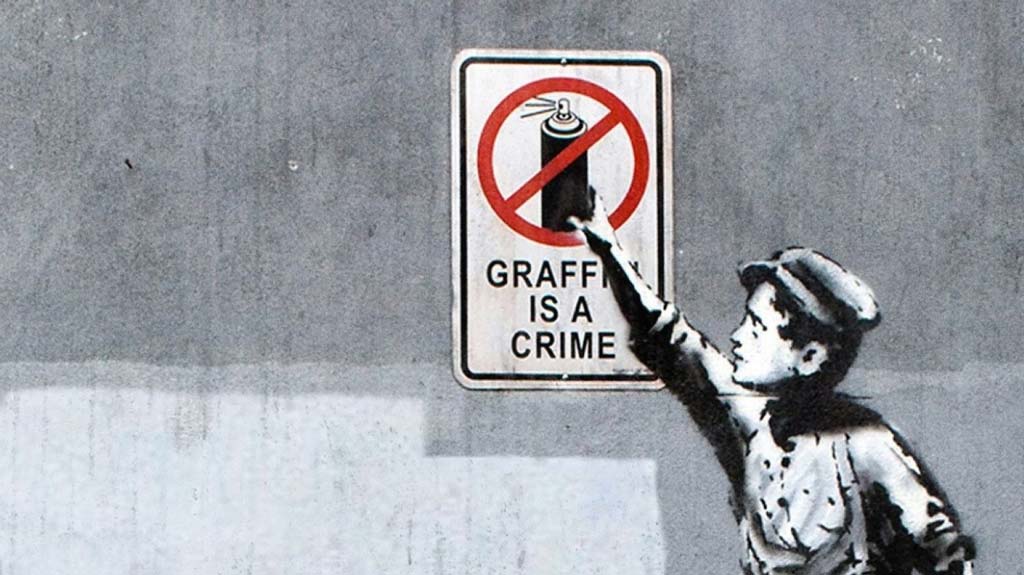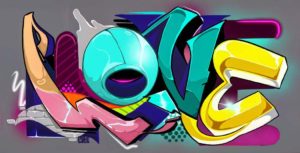Street art is, and arguably has always been, the most dynamic and out-there form of visual expression. Its omnipresence is owed to the globalization of art, along with the influences of the art market, capitalism, new technologies, and pop culture.
Crime, grime, or sublime?

The origins of graffiti can be traced back in history when the art also served as a means of social and political expression. Simple writings in an alleyway carried a powerful message for the masses.
Street art today hasn’t necessarily changed ideologically – artists still use walls to express their messages, more and more creatively than ever before.
Whilst usually done illegally, these forms of art are nearly unavoidable. Public perception has also evolved – with the rise of prevalent street art, such as Banksy’s satirical and subversive epigrams, people are left wondering if these wall paintings could be worth some cash or hold deeper substance behind them. The public has grown fond of street art, with most finding it aesthetically pleasing than deeming it as an act of vandalism.
From subculture to pop culture
Although there are exhibitions dedicated to street art, graffiti work doesn’t require a formal allocated space to be seen. It is all around us; practically pervasive. Its urgent and ambiguous nature is what makes it the most lively, at times controversial, form of freedom of expression through visual art.
Take Manchester’s Northern Quarter in the UK as an example. The walls of its’ streets and buildings are plastered by fluorescent portraits and random abstractions of famous dead people in the city’s thriving music scene. Upon David Bowie’s passing in early 2016, a French-born artist took a lightning bolt step to paint a tribute to the artist on what seems like an old telephone booth. The mural attracted a number of tourists as well as locals. It was then overlapped by an illustration of Sloth from cult film The Goonies.
This evidently shows the substantial and rapid impact of pop culture on today’s street art.
Modern eateries also provide empty canvases for street art to be performed. Wallpaper murals may be classified as contemporary, classic, or eclectic depending on the images used. Each image has the potential to transform a culture or ambiance into your space.
In a world where millennial trends prevail, “pretty looking” walls typically end up on people’s social media channels. Put a tag on it and it’s shameless advertising and a free investment in branding right there.
Whether it’s to convey a non-conforming message towards the system, or to revamp your business space, the rise of street art is more and more acceptable every day.
The growing visibility of street art has influences stemming from today’s pop culture – visit The Yellow Brick Road Gallery and discover authentic art pieces with pop culture and modern roots.






